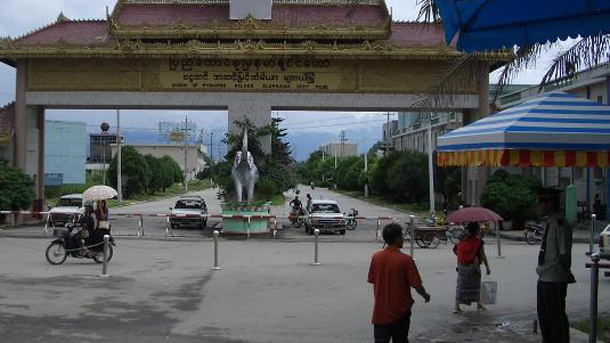Burmese businessmen are complaining of increased import tariffs imposed by the Chinese authorities at the Sino-Burmese border that have slashed their profits.
Traders say taxes have been increased on Burmese exports while loans for firms seeking to trade with Burma have been made more difficult to acquire during China’s slowest economic growth in more than three years.
“The Chinese authorities changed their policy on Burma after the new government. They increased taxes on our products,” local exporters told The Irrawaddy. “The Chinese government has increased taxes on agricultural products, mining products, jade and jewelry, etc.”
Rice imports from Burma to China are subject to a whopping 65 percent tax and so such trade only usually takes place through illegal cross-border smuggling. Burmese rice is of such poor quality that it falls short of World Trade Organization standards making it privy to high penalties.
Every month over 70,000 metric tons of rice flows to China illicitly from Burma and local rice exporters are urging Naypyidaw to encourage Beijing to help legitimize the trade by imposing a reasonable level of tax.
“We will talk with ministries in China to trade our agricultural products legally. We will ask them to buy our rice,” said rice trader Win Myint during an industrial meeting in the Burmese capital Naypyidaw at the beginning of June.
Beijing also increased tax on Burmese jade from 15 to 33 percent and so reducing demand from Chinese dealers, claim traders attending a jade exhibition in Naypyidaw.
“We cannot sell our jade products to Western and European countries because of sanctions. Therefore we sell our jade to China and their jade traders had to pay 15 percent tax on jade materials to their government before,” a jade trader from Mandalay told The Irrawaddy.
“China can then make handicrafts and jade accessories from Burmese materials and sell these on to Western countries with a high profit. After the Chinese government increased the tax on jade materials bought from Burma, Chinese traders lost money in the jade business as they cannot get the same profit.”
If we can sell our jade as products and accessories, we wouldn’t sell to China but export directly to Western countries instead, he added. While the Asean-China Free Trade Area came into effect on Jan. 1, this does not apply for cross-border trade which remains subject to locally-set tariffs.
Currently the Chinese government also does not provide the same low interest loans to jade dealers as other businesses, claim local businessmen. When Burmese traders sell jade at the Sino-Burmese border, they have to pay 12 percent tax on the product’s value to Burma’s Ministry of Mining as well as 33 percent tax to the Chinese government.
The price of groundnut oil is also problematic because Chinese traders buy the raw material and manufacture oil over the border rather than purchasing the finished product from Burma at higher prices, said Khin Soe, owner of Ayeyarwaddy Peanut Oil Trading Company.
“Our government should ask China to accept edible oil from Burma instead of buying the groundnuts themselves and producing oil over the border,” he said. “We want to sell value-added products which can create job opportunities and develop of local industries at home.”
Burma’s fisheries sectors also face high taxes from China on imported seafood amounting to 13 percent.
“We can get free tax on our products from China as China also agrees to trade with Asean countries according to AFTA [Asean Free Trade Area],” said Tun Aye, chairman of the Myanmar Fishery Products Processors and Exporters Association.
















